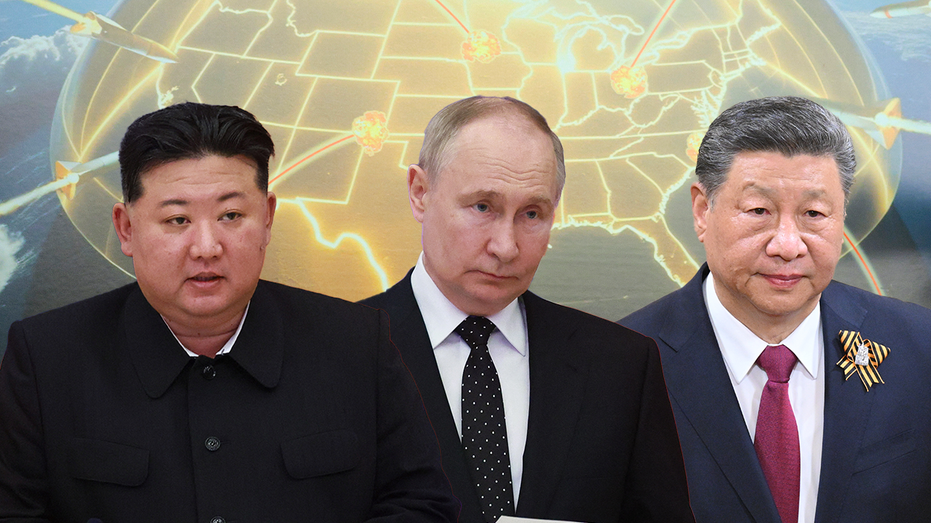Russia, China, North Korea Condemn U.S. Trump’s $175 Billion Golden Dome Missile Defense System
U.S. adversaries condemn Trump’s Golden Dome plan, warning of a new space arms race amid U.S. homeland security claims.

The United States’ newly announced space-based missile defense initiative, known as the "Golden Dome," has drawn sharp criticism from its primary global rivals—Russia, North Korea, and China. All three nuclear-armed nations have condemned President Donald Trump’s $175 billion proposal, characterizing it as a dangerous move that threatens international stability.
President Trump detailed the plan last week, describing a vision in which satellites and advanced technologies would work together to detect and intercept missile threats from anywhere around the globe. He set an ambitious target of three years for full deployment, despite widespread expert opinion that such capabilities are likely several years away from being operational.
The response from adversarial governments was swift and pointed. North Korea’s foreign ministry, referencing the relatively cordial ties that existed between leader Kim Jong Un and Trump during his earlier term, went so far as to call the initiative the equivalent of an “outer space nuclear war scenario.” State media described the project as emblematic of "America first" attitudes, labeling it the "height of self-righteousness, arrogance, high-handed and arbitrary practice."
Pyongyang’s statement also warned that the plan signals an attempt to militarize outer space, accusing the U.S. of seeking preemptive military superiority “in an all-round way.”
Russian foreign minister Maria Zakharova echoed these concerns, telling reporters that the strategy would undermine decades-old principles underpinning global strategic stability. According to Russian officials, the creation of a worldwide missile defense system could disrupt the balance between offensive and defensive military capacities.
Moscow’s objections were reinforced earlier this month in a joint statement issued alongside China after leaders Vladimir Putin and Xi Jinping met for formal talks. The two countries described the "Golden Dome" as “deeply destabilizing” and warned that it erodes the critical relationship between offensive and defensive strategic arms. Their joint declaration argued the system would risk transforming outer space into a venue for armed conflict and the placement of weapons.
While Russia has kept a lower profile in its public comments since Trump revealed details of the plan from the Oval Office—just days after a lengthy call with Putin—China has maintained its vocal opposition. Responding to the announcement, Chinese Foreign Ministry spokesperson Mao Ning stated the project “will heighten the risk of turning space into a war zone and creating a space arms race, and shake the international security and arms control system.”
Despite mounting international backlash, Trump administration officials continue to defend the initiative as strictly defensive. Secretary of Defense Pete Hegseth rejected accusations that the system is "offensive" in nature, emphasizing, “All we care about is protecting the homeland.”
Officials at the White House did not immediately address the criticisms raised by foreign leaders. The plan is designed along similar lines to Israel's "Iron Dome" air defense system, though on a much larger and higher-tech scale, tailored for global rather than regional missile threats.
As the U.S. pushes forward with development, the "Golden Dome" stands poised to become a new point of contention in the already fraught relationships among the world’s major powers, raising questions about the future of arms control and the peaceful use of outer space.
Morgan Phillips contributed to this report.




